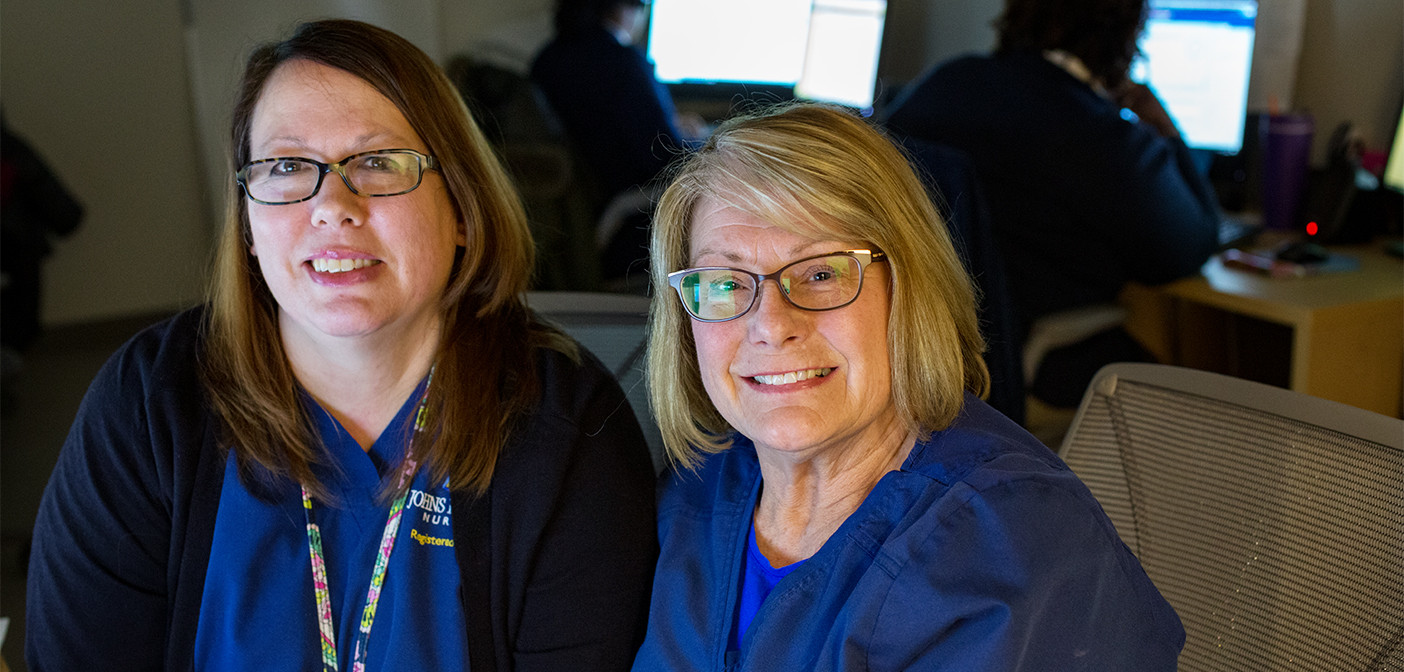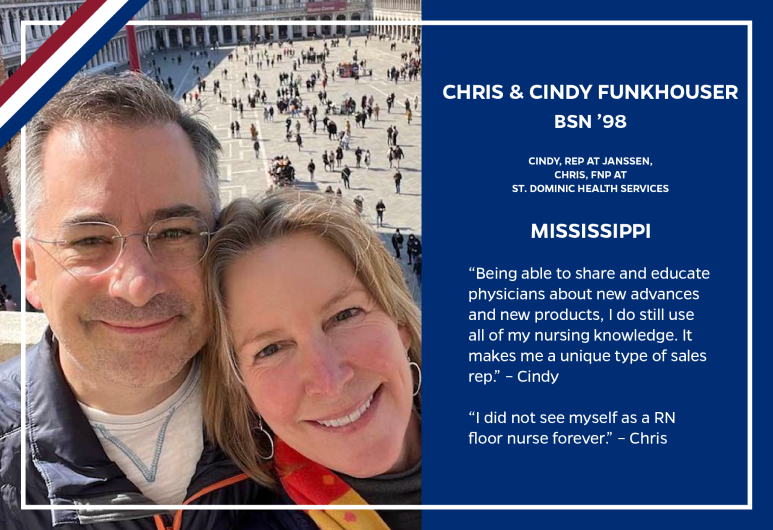Oncology phone triage nurses bring their personal touch to expert care
Knowing that help truly is only a phone call away can remove a tremendous amount of stress for cancer patients, leaving them freer to focus on physical and emotional healing. “We are such a crucial link in their care,” says Carol Weszka, RN, a phone triage nurse at Sidney Kimmel Comprehensive Cancer Center at The Johns Hopkins Hospital.
“You need to be their champion”
Weszka and Wendy Kleinsmith, RN, are linchpins on a team of nurses charged with lowering patient anxiety through education, empowerment, and empathy while reducing unnecessary trips to the emergency department by offering rapid referrals to their provider or the cancer urgent care center. “You need to be their champion,” explains Weszka. It’s a 24/7 operation, with quick callbacks for patients who phone in seeking advice, asking about symptoms, or needing prescription refills.
Kleinsmith and Weszka draw on decades of experience in cancer care (60 years between them) as they do a complete review of a patient’s medical record, collect data, and record observations that can help patients manage symptoms at home or move to the appropriate level of care quickly and safely. Their assessment and recommendations help prepare the medical team to provide treatment. It’s about managing symptoms, identifying toxicities that require immediate intervention, decreasing stress of patients and their caregivers, and building continuity of care and patient satisfaction. For Kleinsmith and Weszka, who admit to having a few extra miles on the nursing odometer, it’s also about self-care, extending their careers after decades of intense work caring for hospitalized oncology patients. When it comes to knowledge and compassion, they’ve got plenty left in the tank. And they know how to listen.
“Patients worry that they’ll be bothering us,” Kleinsmith explains. “Any time if you’re not sure if you should call … you should call.”
During one recent shift in the quiet, windowless room that serves as the oncology nurse triage command headquarters, Kleinsmith was chatting with a patient who mentioned chest congestion: “Yes, I can hear the rasp there. You don’t want to wait on that. Let’s come in and get it checked out.” She grabbed a pen and began to quiz the patient about how long a cough had been present, what made it worse, what made it ease, etc. Later, the physician would view Kleinsmith’s triage nursing note with the situation, background, assessment, and recommendations.
If the patient hadn’t called, a potentially dangerous symptom—and an opportunity to help—could have been missed. But there can be reluctance. “Patients worry that they’ll be bothering us,” Kleinsmith explains. “Any time if you’re not sure if you should call … you should call.”
It’s the opposite of a bother. “I’ve always enjoyed working with the cancer patients,” says Weszka. “It’s gratifying to offer support in such a terrifying part of their lives.” Sometimes that support means simply offering a reason to get out of bed and keep going.
And even after the cancer has gone into remission, the triage nurses remain on call. “You have to understand that this never leaves them,” Weszka explains. “Some are terrified every time they get a cough, a new lump or bump, or they haven’t seen their latest test results yet. Or they take a physical for a new job and they are worried what they’ll find. We’re here to say, ‘Now let’s not go there yet …’ ”

 Cynda Rushton Earns AACN Award for Distinguished Career
Cynda Rushton Earns AACN Award for Distinguished Career Fannie Gaston-Johansson Faculty of Excellence Program
Fannie Gaston-Johansson Faculty of Excellence Program DAISY Awards
DAISY Awards You Can’t Beat Experience
You Can’t Beat Experience From Here to Forever
From Here to Forever







